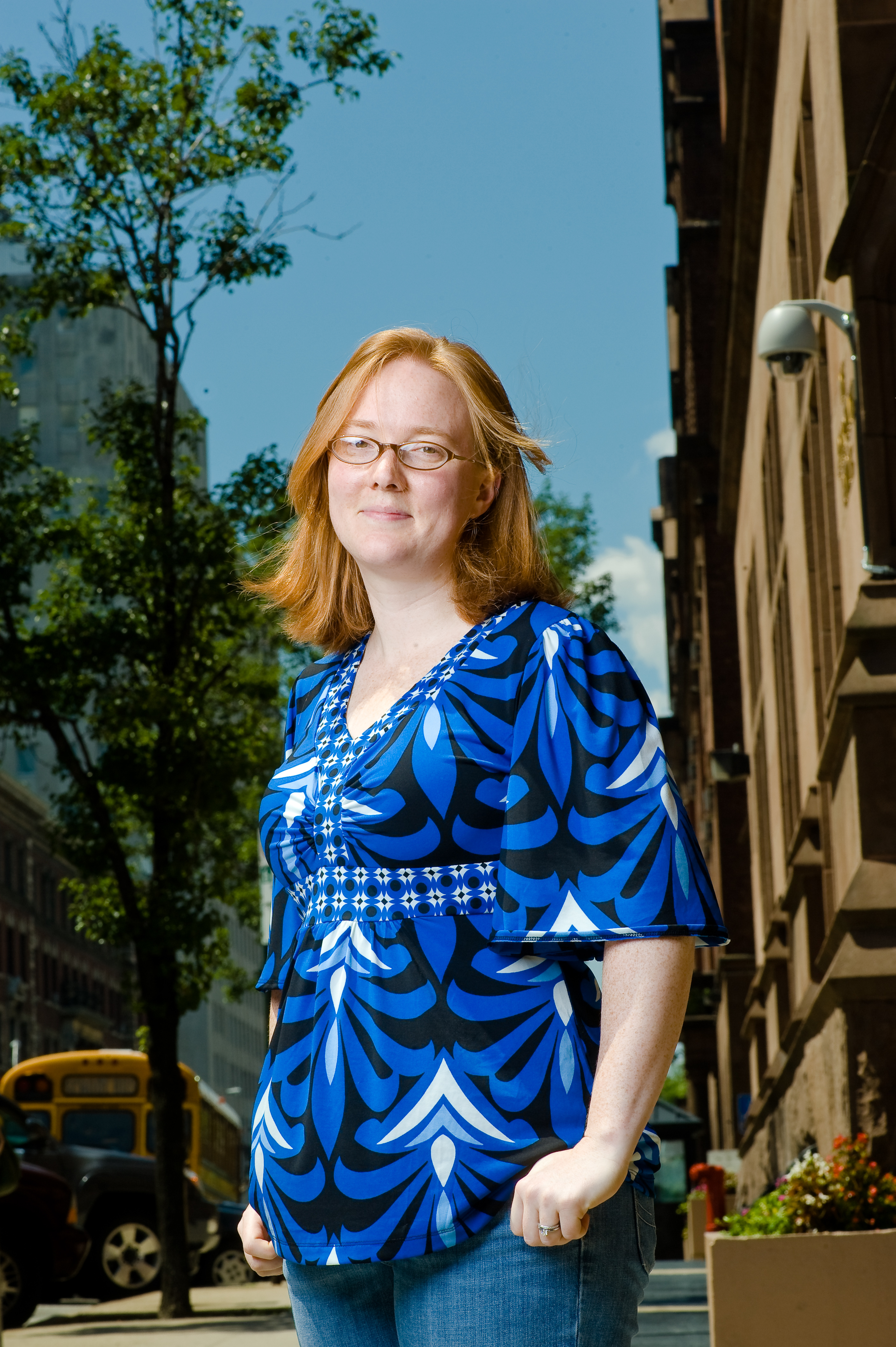Student Profile: Carla Engelbrecht Fisher
For Carla Engelbrecht Fisher, there was a time when the magazine rack at Barnes & Noble held a power akin to that of the Sorting Hat in the Harry Potter books: each publication represented a different possible life.
“Coming out of college, all I wanted to do was work at a magazine—it didn’t really matter which one,” says Fisher, who is earning an Ed.D. in Instructional Technology and Media in TC’s Communication, Computing and Technology in Education Program. “If Motor Trends had hired me, I’d be living a very different life now.”
The magazine that did hire Fisher was Highlights for Children, and it started her down a path that led to
TC, working in research and multimedia content for “
Fisher admits she might not have taken as readily to crankshafts as she did to children’s media. “I never really grew up,” she says. “I’m still perfectly happy to play with kids’ toys and watch children’s television shows, even though I don’t have kids. Most of my friends working in other fields don’t get to have stuffed animals on their desks.”
But Fisher’s true love is playing with ideas, and TC has helped her to do just that. For starters, the College awarded Fisher a one-year Elihu Rose Fellowship, covering about half the cost of her tuition. The Fellowship required her to do an internship with a non-profit company, and her advisor, Professor Chuck Kinzer, suggested she try Sesame Workshop, the production facility for “Sesame Street” and related toys and education products, because it was one of the few places doing the kind of game development she was interested in. As a result, Fisher has gotten to work directly with Glenda Revelle, the Workshop’s Vice President for Education and Research and Creative Development and Digital Media, who is something of a living legend in the field. And of course, there was the coursework, which put cognitive development concepts together with technology.
“It’s made me a much bigger geek,” she says. “All these interesting things I see have names and reasons and theories behind them, and I share that way too often with people who don’t really care.”
She finds this rich research background invaluable in her field. “Research works hand-in-hand with the development cycle,” she says. “There are so many more nuances to designing effective products for children than just making bigger buttons and using shorter words. It helps to stand on the shoulders of researchers who have done so much testing.”
Right now Fisher is working at Sesame Workshop on multimedia software that tailors instruction to the individual student. Students take a standard literacy test, and the program uses their individual profiles to provide games and video content (including over 2,000 archived clips from the 1970s educational TV show “The Electric Company”) that focus on the areas where they struggle.
“In the classroom, a student is often one voice among thirty, but online you have opportunities to tailor content toward interests and needs,” Fisher says. “We’re going to see more and more of that in education.”
Still, she says, parents face challenges in navigating all the new technology in education.
“There is so much more noise out there to sort through. We may have had a computer as kids, but we weren’t also competing with a cell phone, a Nintendo DS, a Wii, and XBox and 14,000 different channels and Web sites. The sheer amount of choices is huge.”
For her own part, though, Fisher says it’s rewarding to be able to say “I made a game today.
“Every once in a while I’ll see a kid on the subway using something that I helped to create, and it’s just a great feeling.
Published Monday, Nov. 10, 2008
